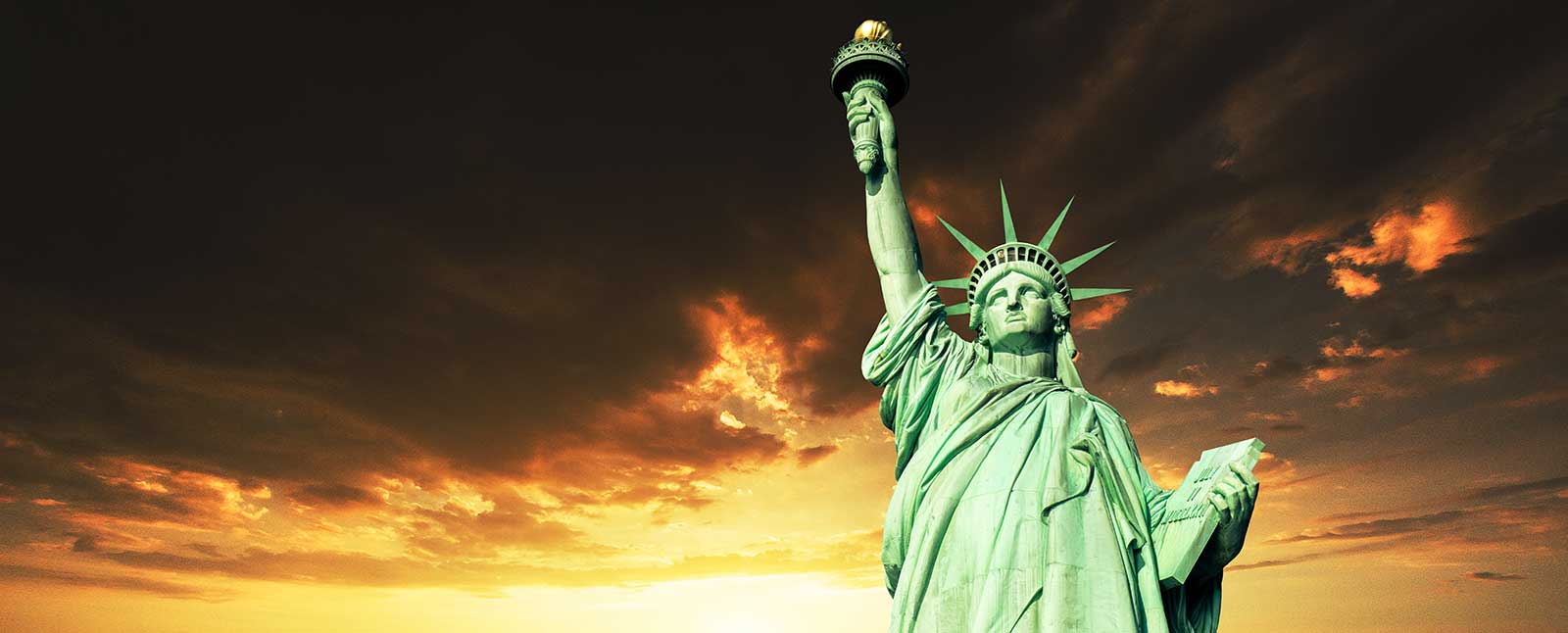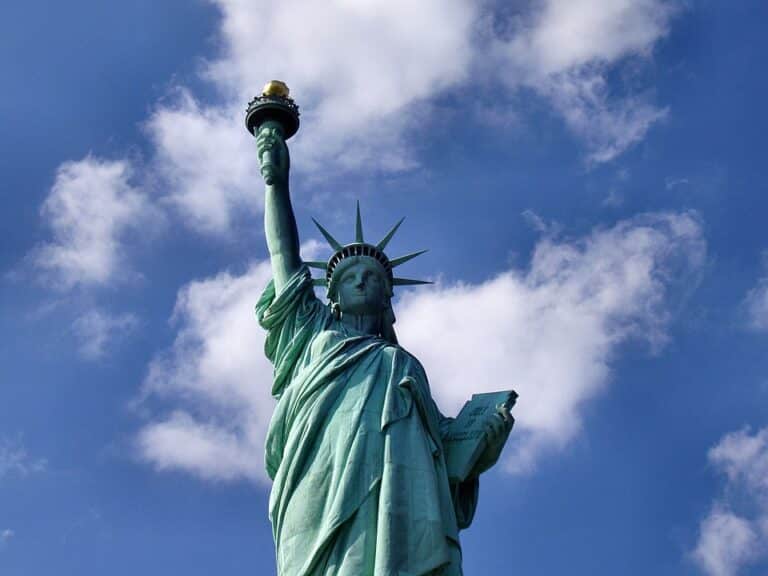Taking Our History Seriously

The Canadian philosopher George Parkin Grant has observed that Canada and the United States are two countries of European origin with no history before the modern period. In the United States, this fact has led to an ongoing debate about when we began as a country. In considering this phenomenon, we should be clear that in any country, ours included, the study of history is not only an important exercise in cultural preservation, it is inevitably political. The politicizing of history was commented upon concisely in a well-known passage from George Orwell’s book 1984 in which one character remarks to another that those who control the past control the future. The story a people tell themselves about their past is a critical element in the health and well-working of a society. A people who celebrate their past and are proud of their country, mindful of mistakes, determined to improve, but proud nonetheless, will generally be happy and well-governed because they have a society they find worthy of protection and preservation.

It is an admirable quality of western societies generally, and particularly of English-speaking societies, that we examine ourselves to see how well we embody the ideals we espouse, and to seek to improve where we are deficient. Among the peoples of the world, this trait is rare. As fine a quality as this is, it can be carried to an extreme in ways that hold the real potential to be destructive rather than constructive. This constrained perception leads one to insist that a single aspect of the origin of a country, or an institution of society, or a religious faith, or a community, defines the entirety of it, for good or ill, and improvement and growth over time are futile – a position sometimes termed an origin fallacy. The history of the United States, however, strongly belies this fallacy due to our complex origins and the demonstrable progress in the continuing struggles to achieve our nation’s founding ideals.
An important aspect of our history concerns when the United States began as a country. Did we emerge in history as a country when the thirteen American colonies declared their independence from Great Britain? Did we come into being with the Articles of Confederation and Perpetual Union in 1781, with the present Constitution of the United States in 1788-89, or with the meeting of the first Congress under the Constitution? Should we seek our origins much earlier, at Runnymede in England in 1215, for example, where English noblemen compelled King John to acknowledge limits on his power that were grounded in their rights and codified in a constitution known as Magna Carta? This is a conversation Americans should engage in because it is important for the self-understanding of a people to know their origins in history and to talk about it, teach it, and celebrate it.
What is needed in this country is a revival of appreciation for our history and a wider willingness to celebrate the United States for its many excellent qualities and achievements, and importantly, to recognize the treasure that is citizenship in this country, which so many people around the world long to gain. We can get a good sense of this with only a few examples. To quote the Declaration of Independence: “…let Facts be submitted to a candid World.”
The people of British America were the first to take seriously, as a people, the rights that human beings possess by nature and what these mean for government. In pursuit of this, they worked out the principle of federalism as the ground of a government, a federated republic, for the preservation of freedom and the growth of prosperity. This is easily overlooked because so many countries in the world have since attempted to produce federated republics. In the mid-19th century, Switzerland adopted a constitution deliberately based on the Jeffersonian model of federalism in which the central government is not sovereign, but rather is an agent of the states that created it, and it has worked well for them since. This form of government was designed to prevent the centralization of power, what was called “consolidation,” which is the greatest threat to liberty.
As commanding general of the Continental Army, George Washington declined an offer from the British to negotiate a peace treaty with British Crown at the end of the War of Independence, insisting that the conduct of foreign policy belongs to civilian authority. A recent historian reported that the world was “astonished” at a general, victorious in war, deferring to civilian authority. But this arrangement serves the protection of liberty because in a federated republic civilian authorities, unlike army generals, are accountable to the people.
As president of the United States, Washington retired after two terms in order to establish in fact that in America, we have no presidents for life.
Americans have long understood that the preservation of freedom and the control of government power require freedom of political speech, for it is unadorned tyranny to allow only one narrative and to demand that everyone repeat it. This is the death of thought and with it, everything that makes life interesting, exciting, and good.
On freedom of religion, our forebears were original thinkers, and however dedicated to absolute freedom of religion that James Madison and Thomas Jefferson were, they understood, as many in Europe did not, that you cannot force people to be free. The best we can do is to insist that government reside as close to home as possible so that people can learn firsthand what freedom and self-government are, and what they require. There is a famous letter from the Danbury, Connecticut Baptist Association to President Jefferson in 1801 asking his help in their struggles as a religious minority in a state with an established church. Jefferson commiserated with them, but said plainly that the federal government has no authority to interfere in the states where the Constitution has not delegated power to do so. If we are to keep government as local as possible, we must be vigilant to block efforts of the general government to exercise power the Constitution has not given it.
The Statue of Liberty was given to the United States by the people of France and dedicated in New York City in 1886. When it was assembled and erected, New Yorkers celebrated with the city’s first ticker-tape parade. In 1903 an inscription was attached to the base of the statue from a poem by Emma Lazarus titled “The New Colossus.” It is a little-known and somewhat ironic fact that the part of the poem affixed to the statue that speaks of tired, poor, and huddled masses, inverted the actual purpose for which the French gave it to us. The statue is now thought to be a kind of lighthouse guiding the masses of the globe to New York Harbor, but the French originally intended it to be a beacon of liberty shining out to the world as the example to follow by peoples everywhere who desire in their own countries to be free. Nevertheless, one of the great countries of the world found in the United States the example to emulate by people the world over who desire to be free.
Our country is large, and our history, though short by the standard of many countries in the world, is deep and complex. There is much in it from which people can learn about humanity and its meaning, friendship and family, love and loyalty, self-mastery and courage, and freedom and self-government. We are not a people fundamentally motivated by hatred or animosity toward our fellow citizens; rather, Americans are widely known to be the most generous people in the world. Handing down our history should be, like all study and conversation, an honest effort to understand and to communicate what is learned. In this way, we come ever better to understand our past as a people, and are thus able to preserve and to improve our political tradition and importantly, to pass it on to our children and to posterity.

